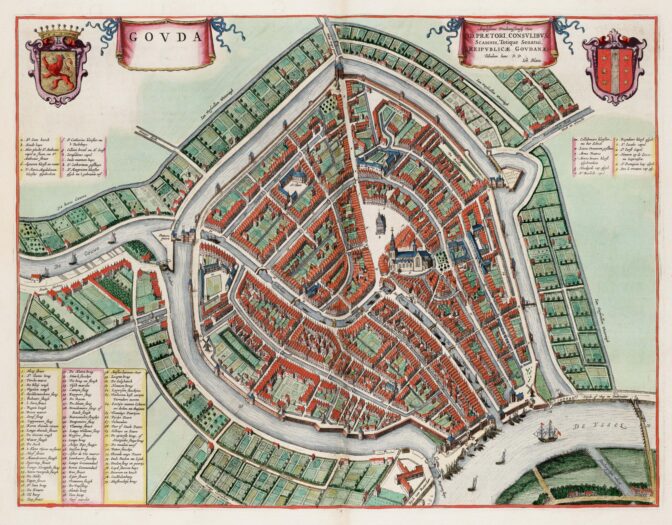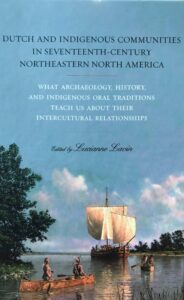This article gives an overview of the new sources, websites, and other archives news that was announced last month.
Sources
- The National Archives of the Netherlands published 1.9 million scans relating to slavery.
- The image collection of the municipality of Haaren is now available at the website of the Regionaal Archief Tilburg.
- The West-Fries Archief now made the family cards 1919-1939 available online again. You can search via the Personen [persons] page. These scans were taken offline in 2018 when new privacy regulations disallowed publication of cards containing living people. Volunteers have now entered the birth dates of all the people on the cards so the website can automatically detect which cards contain people who were born less than 100 years ago. The other cards are now available again.
- Scans of church records from the island of Schouwen-Duiveland in Zeeland 1527-1810 have been added to the finding aids at the Zeeuws Archief website.
- Indexes and scans of church records and notarial records of various places in the east of Noord-Brabant have been added to the Brabants Historisch Informatie Centrum website.
- Automatically transcribed notarial records from all the provinces in the Netherlands have been made available as open data via Zenodo. This information is now more easily available via Open Archives. This is just a sample of the notarial archives to test the technology. More records will be automatically transcribed in the future.
- Tax records for Ammerstol, Berkenwoude, Gouda, and Stolwijk 1660-1811 have been added to the Streekarchief Midden-Holland website.

Map of Gouda by Johannes Blaeu, 1649 (public domain)
Publications
 A new book about the impact of Dutch traders and settlers in North America was published: Lucianne Lavin (editor), Dutch and Indigenous Communities in Seventeenth-Century Northeastern North America: What Archaeology, History, and Indigenous Oral Traditions Teach us about their Intercultural Relationships.
A new book about the impact of Dutch traders and settlers in North America was published: Lucianne Lavin (editor), Dutch and Indigenous Communities in Seventeenth-Century Northeastern North America: What Archaeology, History, and Indigenous Oral Traditions Teach us about their Intercultural Relationships.- The Rijksmuseum has created an exhibition about slavery. Ten stories featured in the exhibition are also available online.
Projects
- The Central Bureau for Genealogy keeps the personal record cards of people who died in the Netherlands between 1939 and 1994. These cards are not public yet, but copies can be ordered. To better preserve them and improve turn-around, all six million personal record cards will be digitized. See the page about personal record cards for more details about the cards and how to order them. [Source: CBG]
- The Utrechts Archief has started a project to index World War II records. The first series that will be indexed are prison records of people arrested in Utrecht between 1940 and 1950. Volunteers can go to Het Volk to participate.
Archives
- The Netherlands is still in lockdown. Archives are closed and it is uncertain when archives will reopen. Some archives provide scanning on demand.
- The National Archives of the Netherlands and the National Archives of Suriname have extended their collaboration agreement for the next four years. They made an agreement about conservation, digitization, and online presentation of material relevant to the history of both countries. [Source: Nationaal Archief]
- The Noord-Hollands Archief has reinventoried the municipal records of Haarlem during World War II. Until now, all these records were unavailable to the public until 100 years had passed. The review has identified many records that do not contain private information, which can now be accessed at the archives when they reopen. [Source: NHA]
- A new National Strategy Digital Heritage 2021-2024 was formulated. Focus will be on expanding the use of digital heritage, strengthening links with users and creators, taking advantage of new technology, and improving building and sharing of knowledge about digitization. [Source: NDE/Zenado]
- A fire destroyed the University of Cape Town Libraries. Their collection includes the Bleek and Lloyd Collection and other records relating to the mutual heritage of the Netherlands and South Africa. It is unknown which records were lost and which survived. A blog documents the recovery efforts.

Cape of Good Hope, 1660. Credits: Johannes Vingboons, collection Nationaal Archief (Public Domain)


I have very old photos of possible family members from Hoogeveen and/or Zwaartsluis. with no names attached – Where can I send a copy of these photos for identification ‘
Hoogeveen — Familie Gort.
Zwaartsluis — Familie van den Berg
I have a photo taken early in WW11 of a barge load of English prisoners of war docked at Dordrecht on their way to Germany – Is this of historical interest to The Netherlands or The UK.